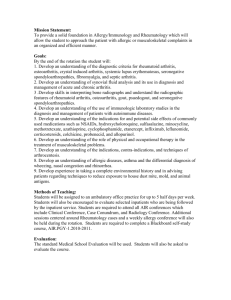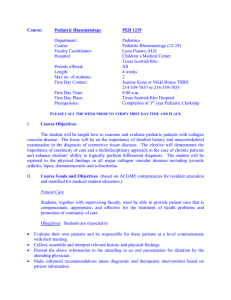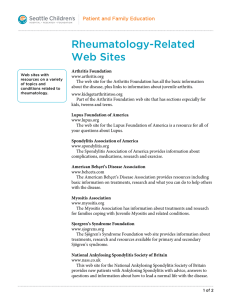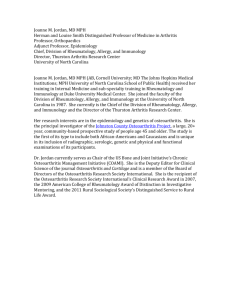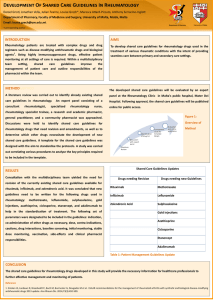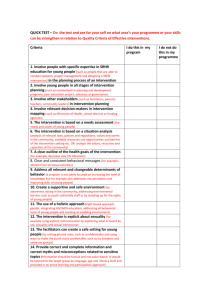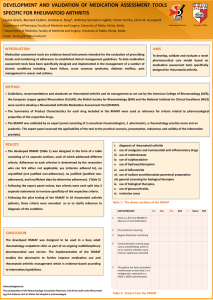Microsoft Word 2007 - University of the West of England
advertisement
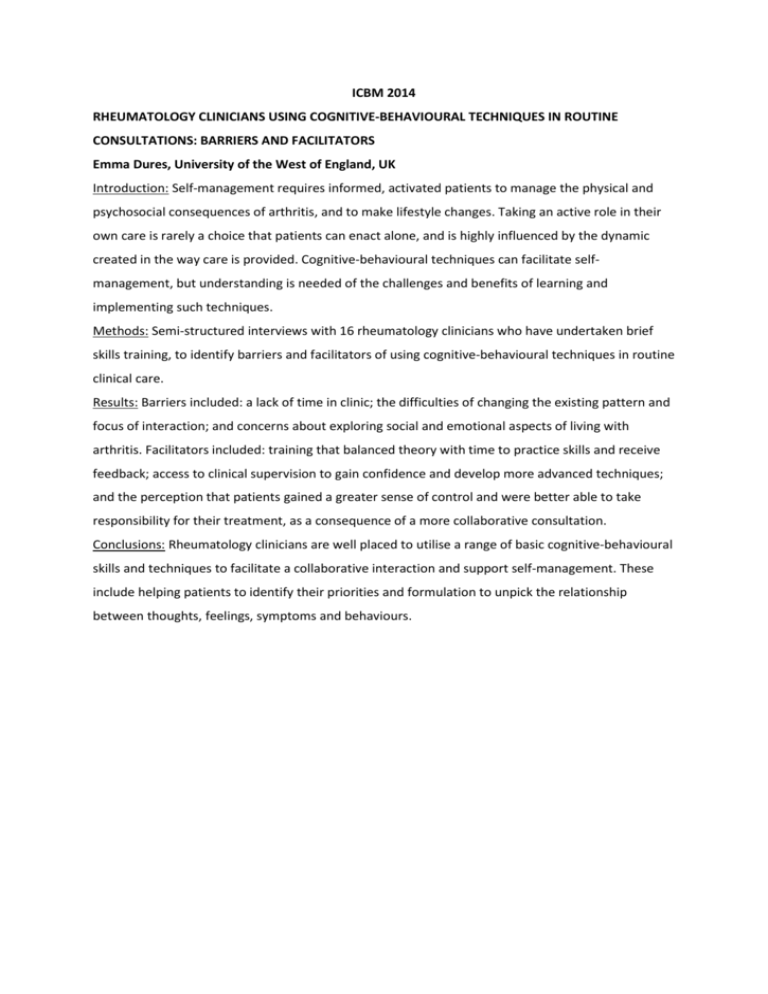
ICBM 2014 RHEUMATOLOGY CLINICIANS USING COGNITIVE-BEHAVIOURAL TECHNIQUES IN ROUTINE CONSULTATIONS: BARRIERS AND FACILITATORS Emma Dures, University of the West of England, UK Introduction: Self-management requires informed, activated patients to manage the physical and psychosocial consequences of arthritis, and to make lifestyle changes. Taking an active role in their own care is rarely a choice that patients can enact alone, and is highly influenced by the dynamic created in the way care is provided. Cognitive-behavioural techniques can facilitate selfmanagement, but understanding is needed of the challenges and benefits of learning and implementing such techniques. Methods: Semi-structured interviews with 16 rheumatology clinicians who have undertaken brief skills training, to identify barriers and facilitators of using cognitive-behavioural techniques in routine clinical care. Results: Barriers included: a lack of time in clinic; the difficulties of changing the existing pattern and focus of interaction; and concerns about exploring social and emotional aspects of living with arthritis. Facilitators included: training that balanced theory with time to practice skills and receive feedback; access to clinical supervision to gain confidence and develop more advanced techniques; and the perception that patients gained a greater sense of control and were better able to take responsibility for their treatment, as a consequence of a more collaborative consultation. Conclusions: Rheumatology clinicians are well placed to utilise a range of basic cognitive-behavioural skills and techniques to facilitate a collaborative interaction and support self-management. These include helping patients to identify their priorities and formulation to unpick the relationship between thoughts, feelings, symptoms and behaviours.



